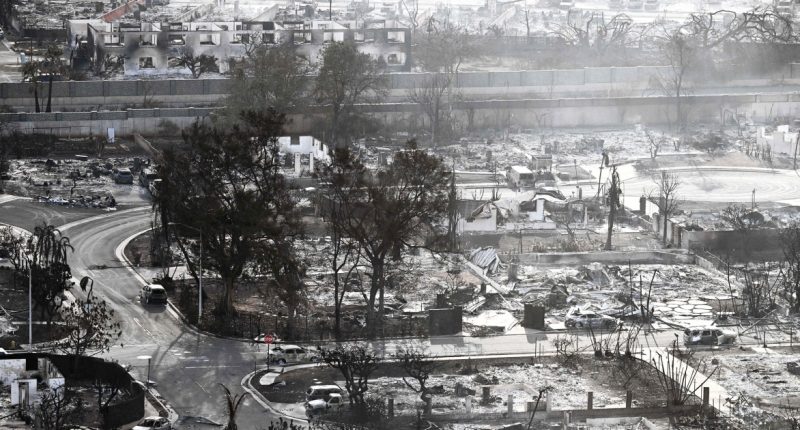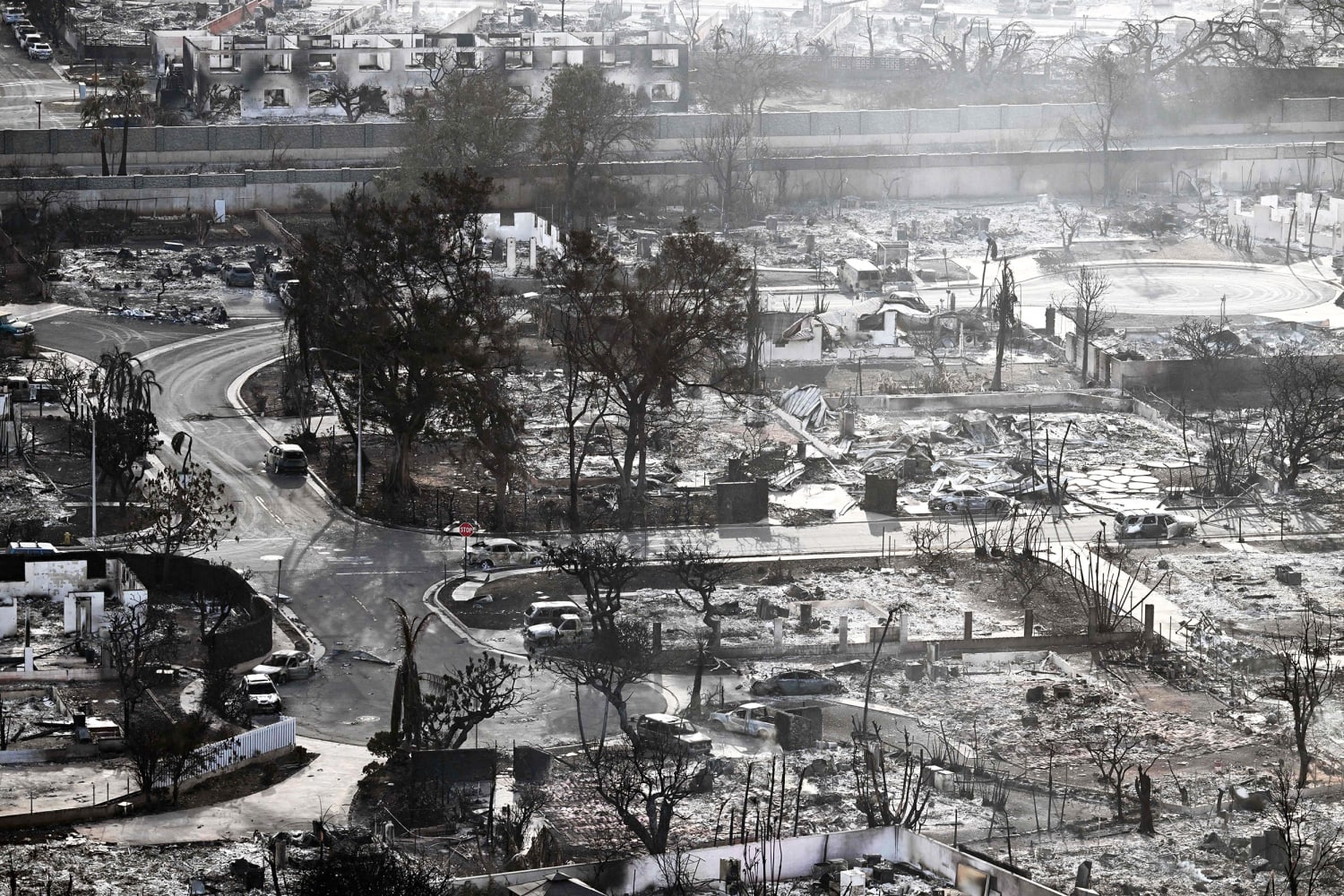
Rebuilding hasn’t even started after a deadly wildfire destroyed the historic town of Lahaina, Hawaii, last month, but residents are already angry and frustrated with recent moves by Gov. Josh Green that are making them question initial recovery efforts.
The distrust in the government is opening deep wounds within the Native Hawaiian community, which fought for generations for a share of the state’s natural resources after sugar cane plantations and tourism made claims to land and water.
Now, they say, that pattern could be repeated with the aid of an emergency proclamation signed by Green that could erode their hard-won rights, despite his reassurances that rebuilding would reflect the needs of Maui residents.
“The very things we have been working so hard to establish are being threatened,” said Kekai Keahi, a Lahaina resident whose family lost property in the blaze, which killed 115 people. “It is a real slap in the face when we still have to deal with the aftermath of this fire.”
The first proclamation, signed several weeks before the wildfire, declared a state of emergency over the state’s housing shortage and suspended environmental and cultural reviews of proposed development projects.
It also suspended Hawaii’s open-meetings law, making it difficult for people to speak out against construction proposals they oppose. The suspension is scheduled to expire Friday.
Green plans to release an updated proclamation with changes based on feedback he has received, spokesperson Makana McClellan said.
“If we’ve made any missteps, then we’ll make adjustments,” McClellan said in an email. “We’re focused on helping people get into homes and we’re going to keep finding ways to move forward.”
A second proclamation, signed after the fire, suspended water code regulations that traditional farmers said protected them against large developers’ overstepping the limits on how much water they can take from streams and aqueducts.
Lifting the regulations allowed more water to be diverted from farmland to a reservoir owned by the West Maui Land Co., a large developer on the island, during fires.
Green reinstated the water rules last week, but residents are wary that future proclamations could jeopardize their efforts to restore Maui’s streams and wetlands.
“If Lahaina folks can’t rebuild Lahaina to what they want it to be, then I think the rest of us are going to give up hope,” said Hōkūao Pellegrino, an east Maui farmer and the president of the nonprofit water group Hui O Na Wai Eh. “This is our last stand.”
The issue has become so volatile that Nani Medeiros, whom Green appointed in November as Hawaii’s chief housing officer, resigned last week, saying in a statement that threats were made against her family.
She also said in the statement that she is a renter who has experienced firsthand the state’s affordable housing shortage, a problem she has dedicated her career to addressing.
“I can’t stand the housing crisis we’re in and have been in for decades,” she said in the statement.
“But over the last several weeks many lies have been said about me and my family,” she continued. “Threats have been made against me, loved ones who don’t even work for the government, and even children. I love my family, and for the sake of their health and safety, I’ve been left with no choice but to resign from my position.”
Medeiros did not respond to a request for comment.
Her short tenure highlighted the problems that underscore broader concerns over land use that have existed in Hawaii for generations, said Marti Townsend, a specialist with Earthjustice, a nonprofit environmental law group based in Honolulu.
“It’s sad the attacks that she has been exposed to, but it doesn’t change anything,” Townsend said last week.
Medeiros resigned three weeks after a top water official, Kaleo Manual, was removed from his post after Glenn Tremble, an executive with West Maui Land Co., said Manuel had delayed a transfer of water needed to fight the Lahaina fire.
Supporters said Manuel was the victim of an effort by state officials and developers to secure more control over Maui’s water rights, which have been fraught for decades with fighting among native Hawaiian farmers, wealthy residents and the tourism industry.
Green has said the state must revisit its water use laws because of climate change and the increased threat of wildfires. But to Native Hawaiians, that means losing protections designed to preserve natural resources.
“All we’re trying to do is uphold our constitutional rights and protect Mother Earth and our environment,” said Ed Wendt, a Native Hawaiian taro farmer who has worked for decades to restore the wetlands where his ancestors lived for generations.
Townsend’s group, Earthjustice, is representing plaintiffs in a lawsuit filed this month in First Circuit Court of Hawaii, challenging Green’s July emergency proclamation. They argue that Green went too far in declaring the state’s affordable housing shortage a crisis, which allowed him to suspend several land-use and environmental laws that would expedite development.
The housing shortage has existed for decades, and while it poses a serious challenge, it does not rise to the level of a crisis that would allow crucial land-use protections to be suspended, the complaint said.
Plaintiffs include residents and a broad coalition of organizations, including the Hawaii chapters of the American Civil Liberties Union and the Sierra Club and advocates for native rights and affordable housing.
“We encourage the governor to focus on affordable housing, but not by suspending the laws that the Legislature has passed to ensure the public has a seat at the table,” said David Henkin, an attorney with Earthjustice.
Green’s proclamation in July established a process to certify new projects that would be administered by a working group of state and local officials, housing rights advocates and developers.
Medeiros was the group’s chair and had the power to unilaterally approve certain development projects. That stoked fears among residents of future deals favorable to builders and developers.
Pellegrino, the east Maui farmer, said: “This is just 2.0 of what happened to our people. The state has to do better this time around.”
Source: | This article originally belongs to Nbcnews.com










